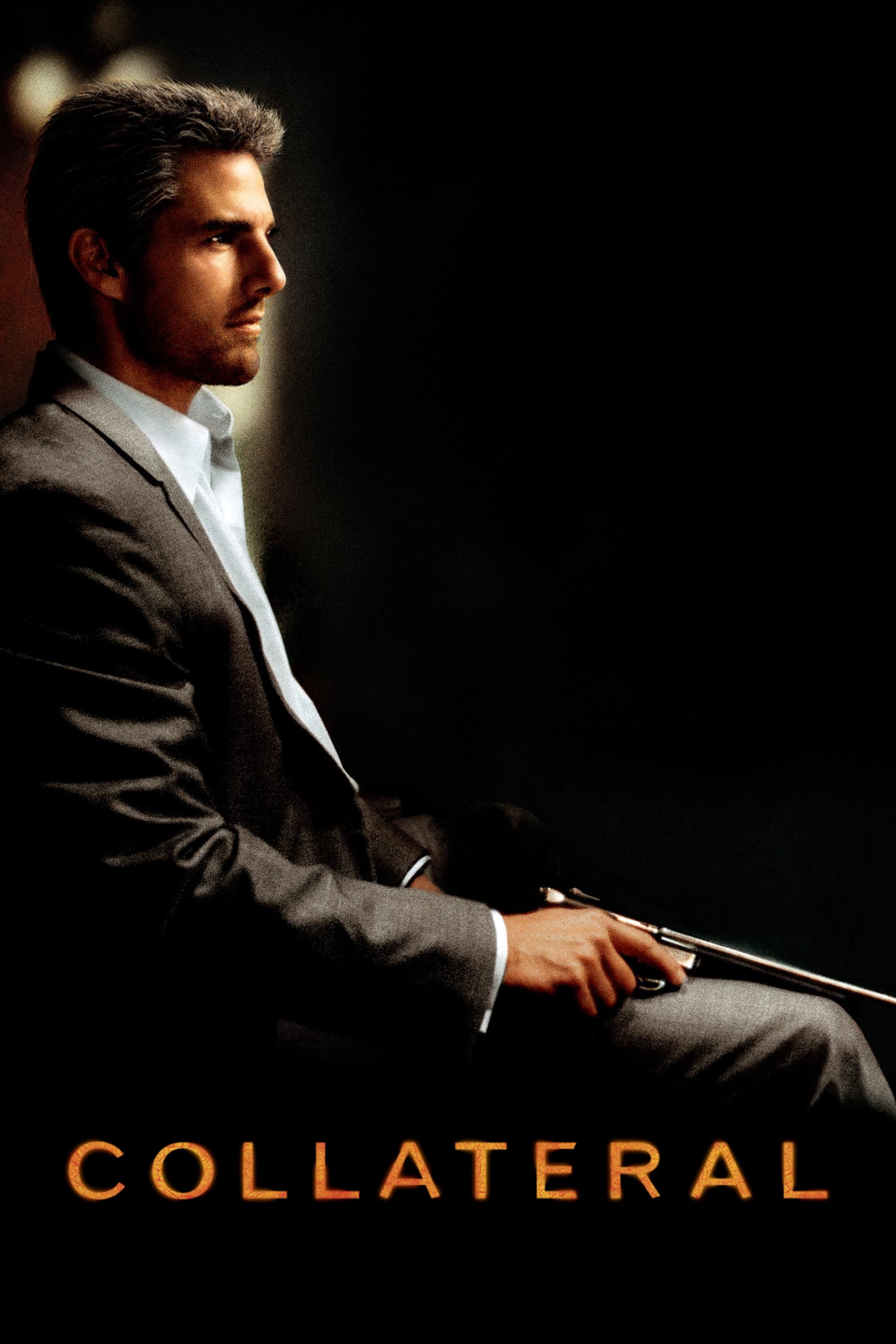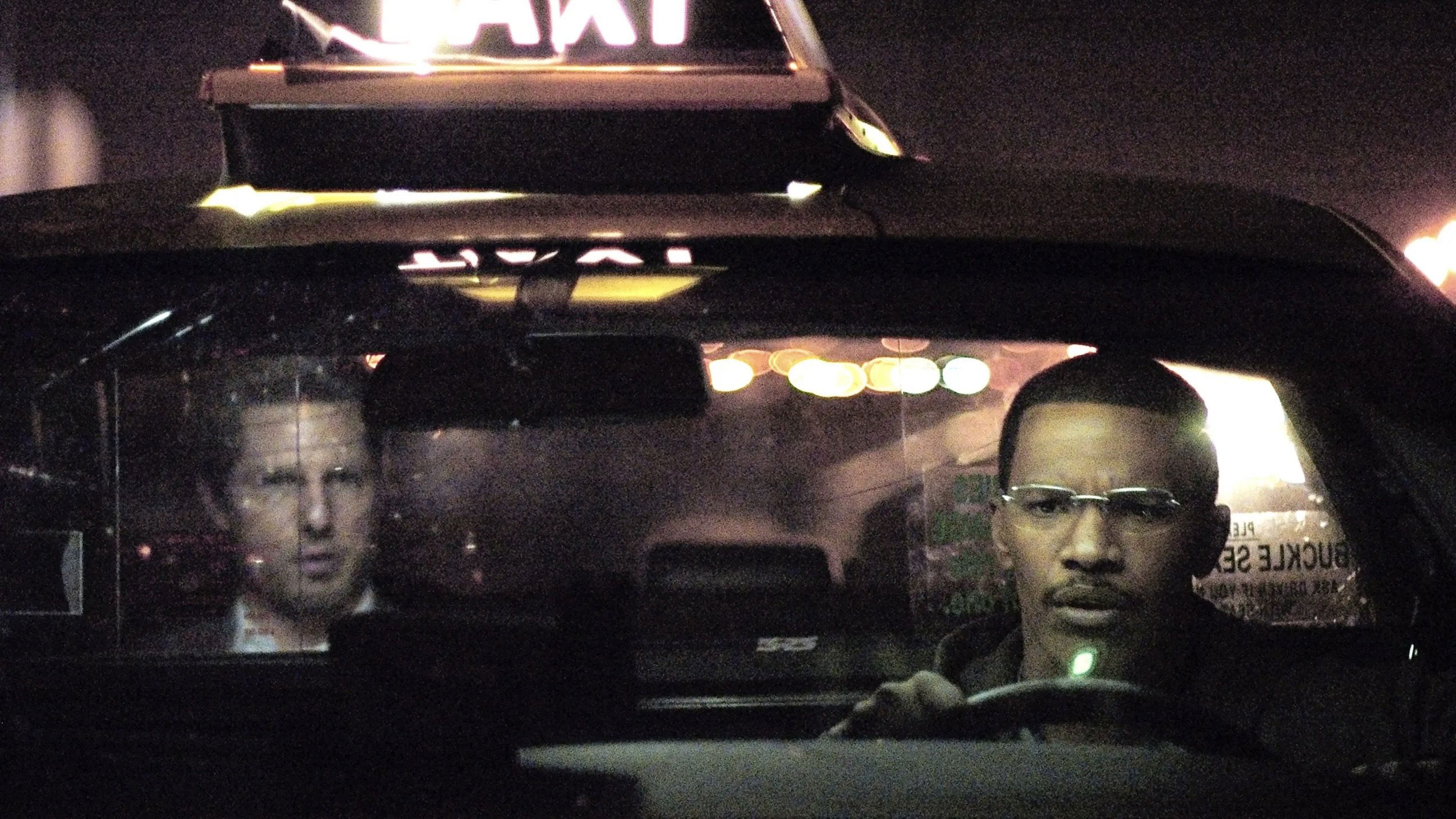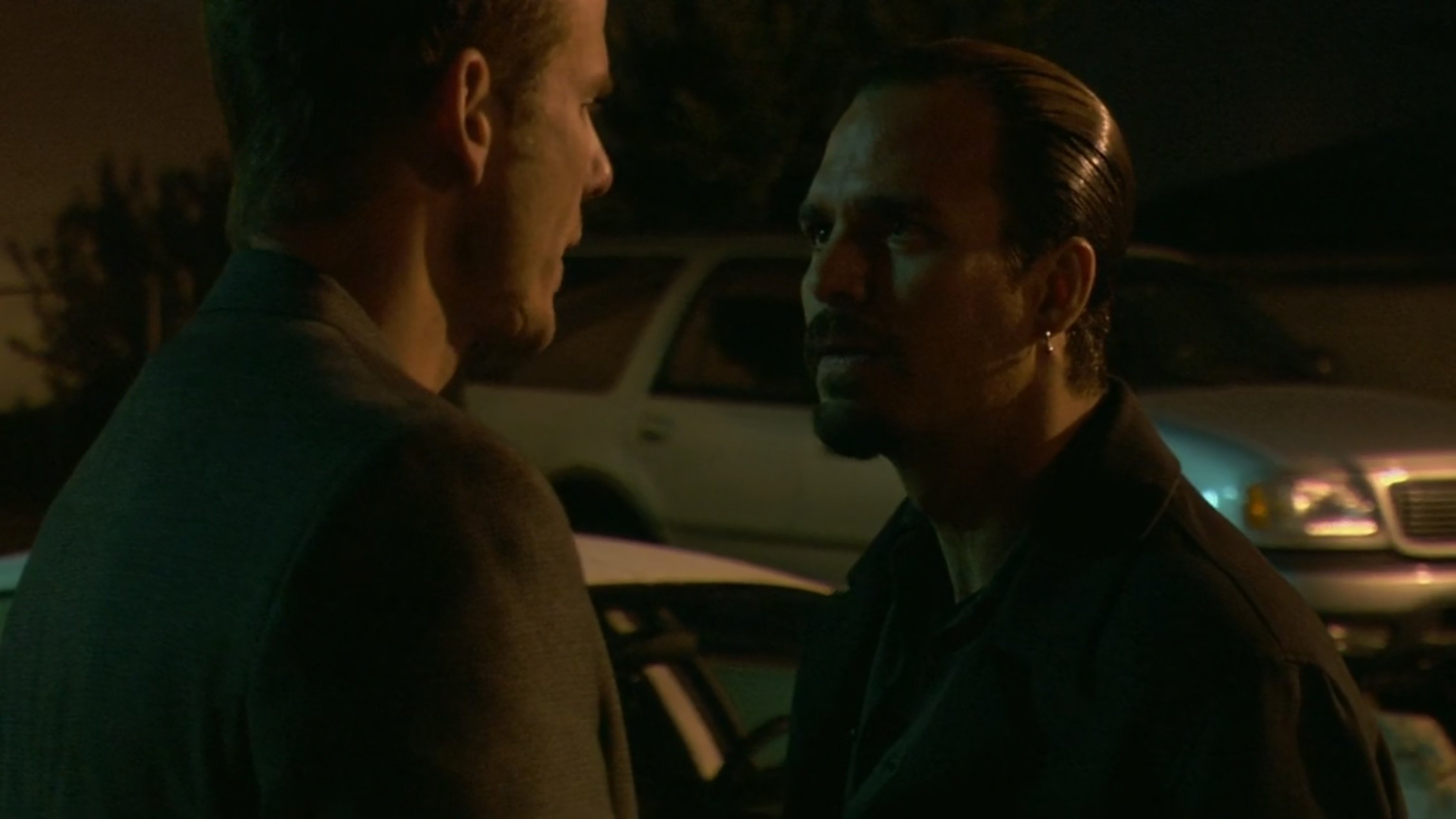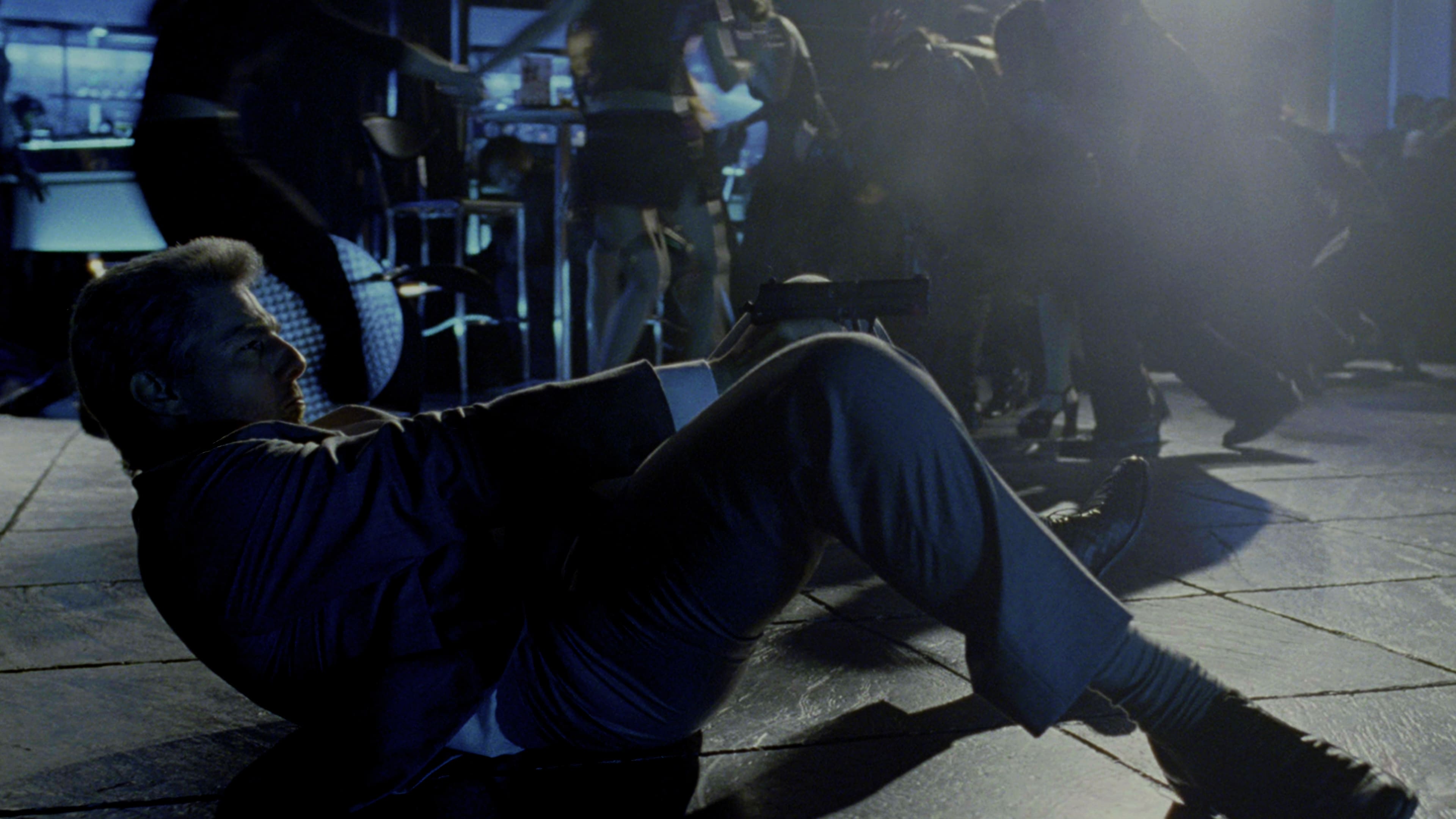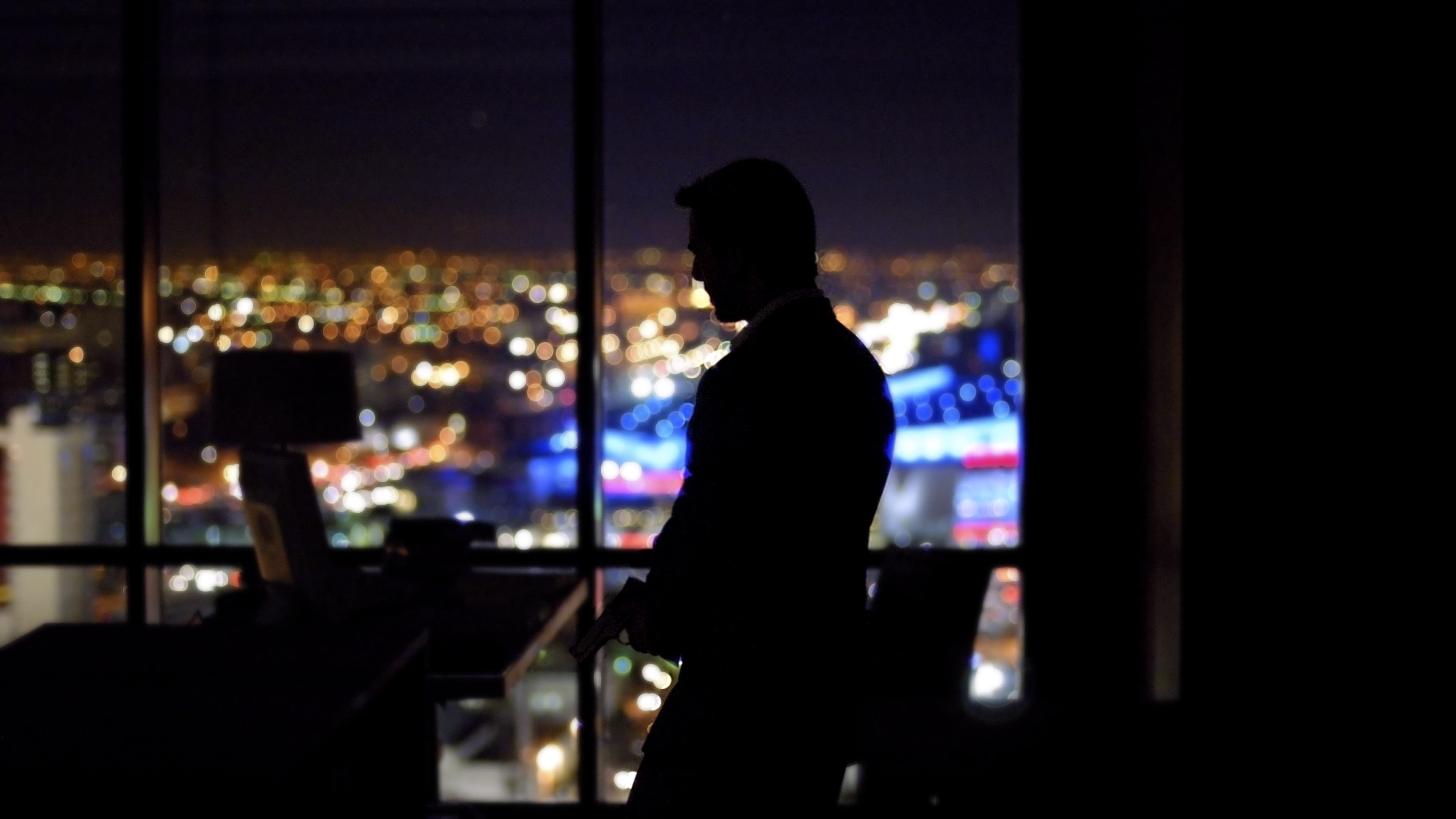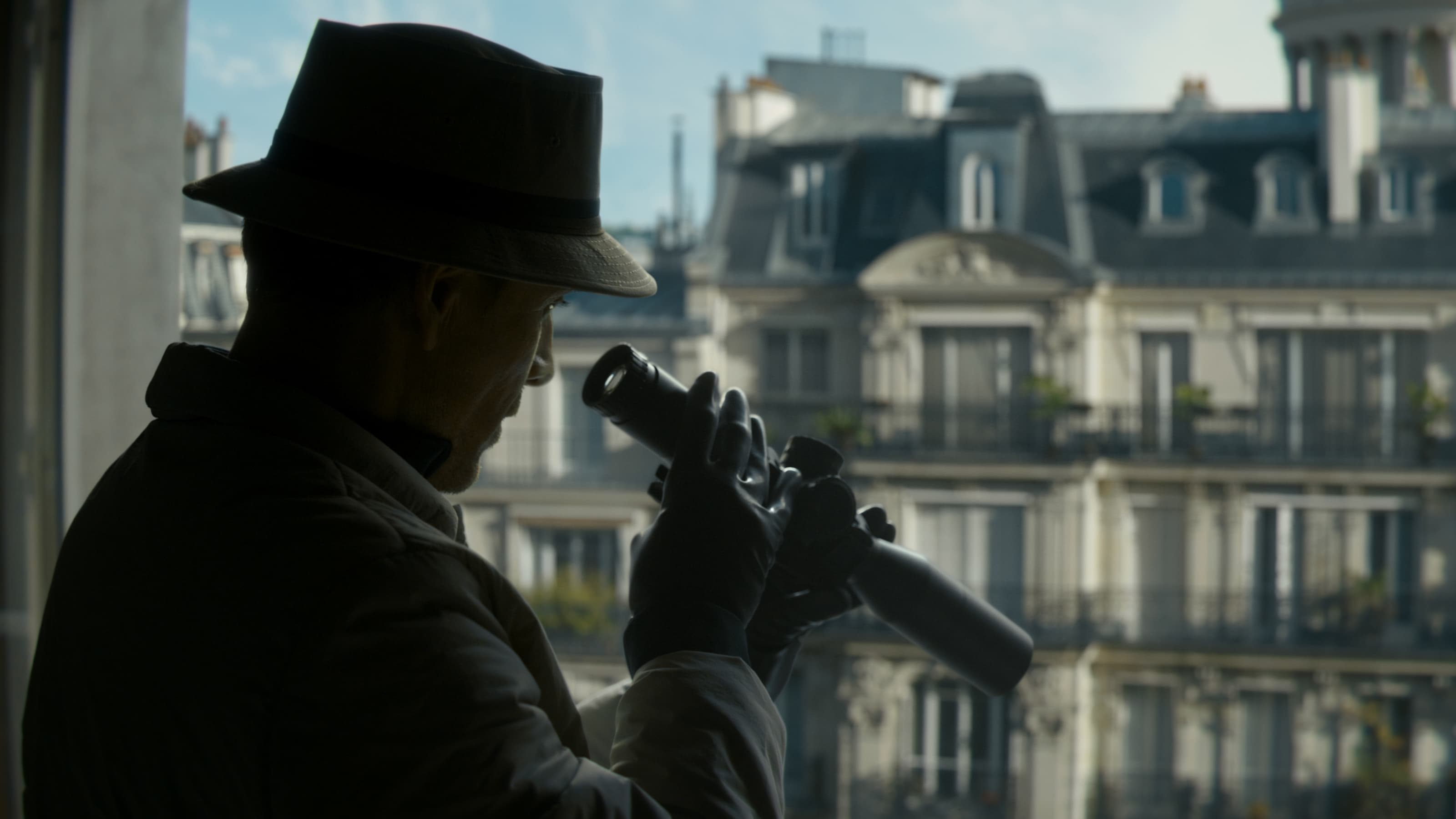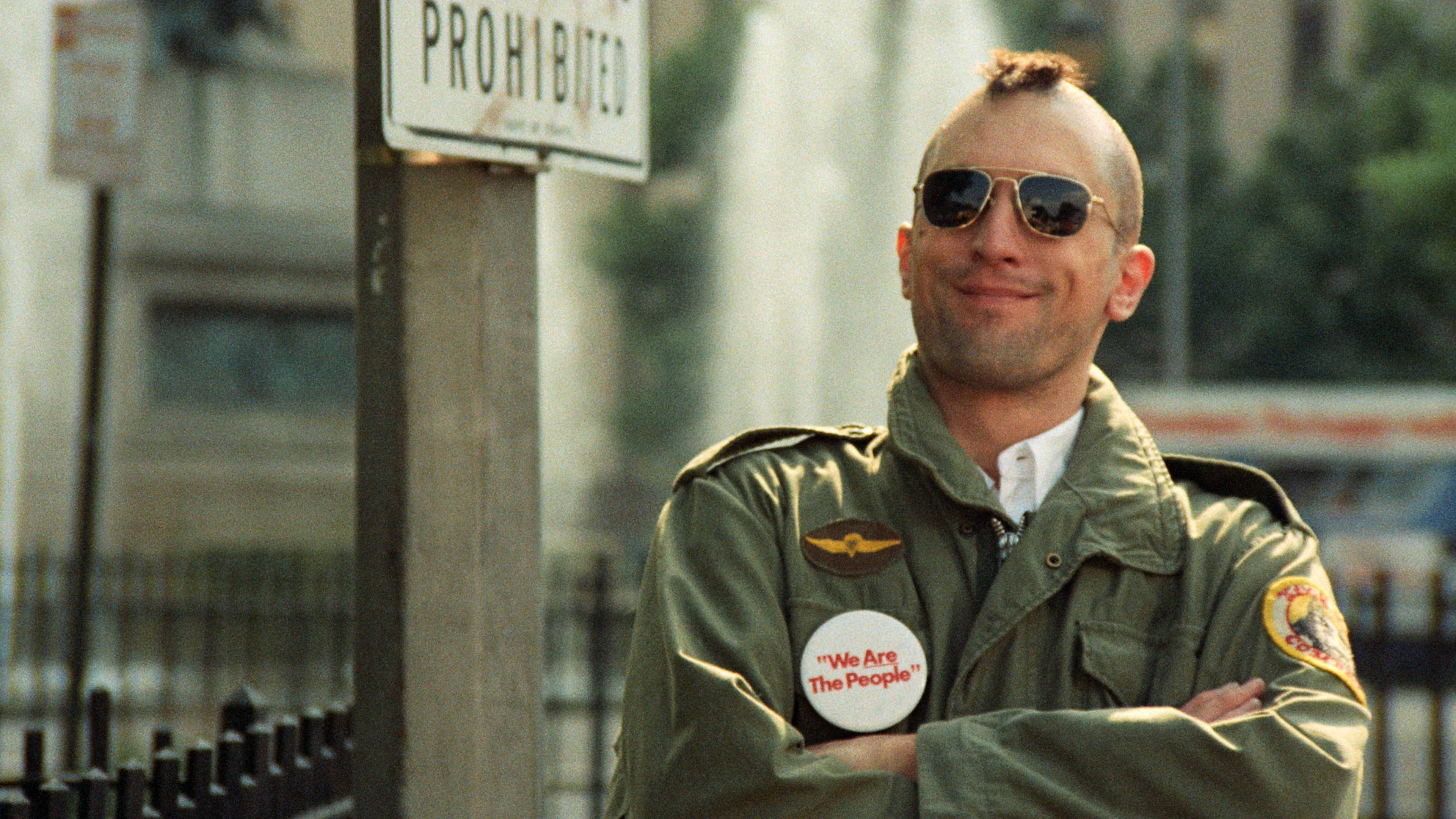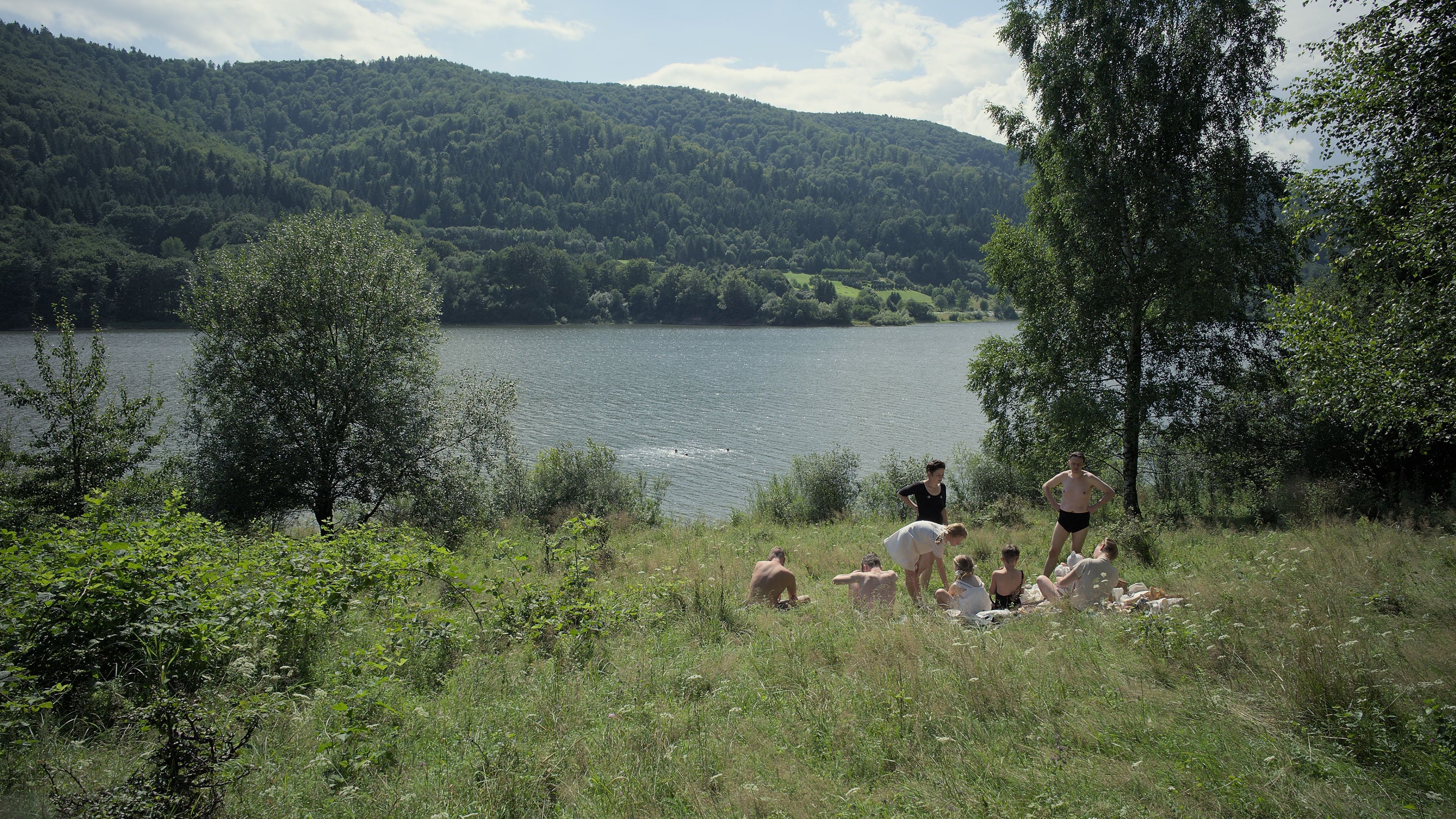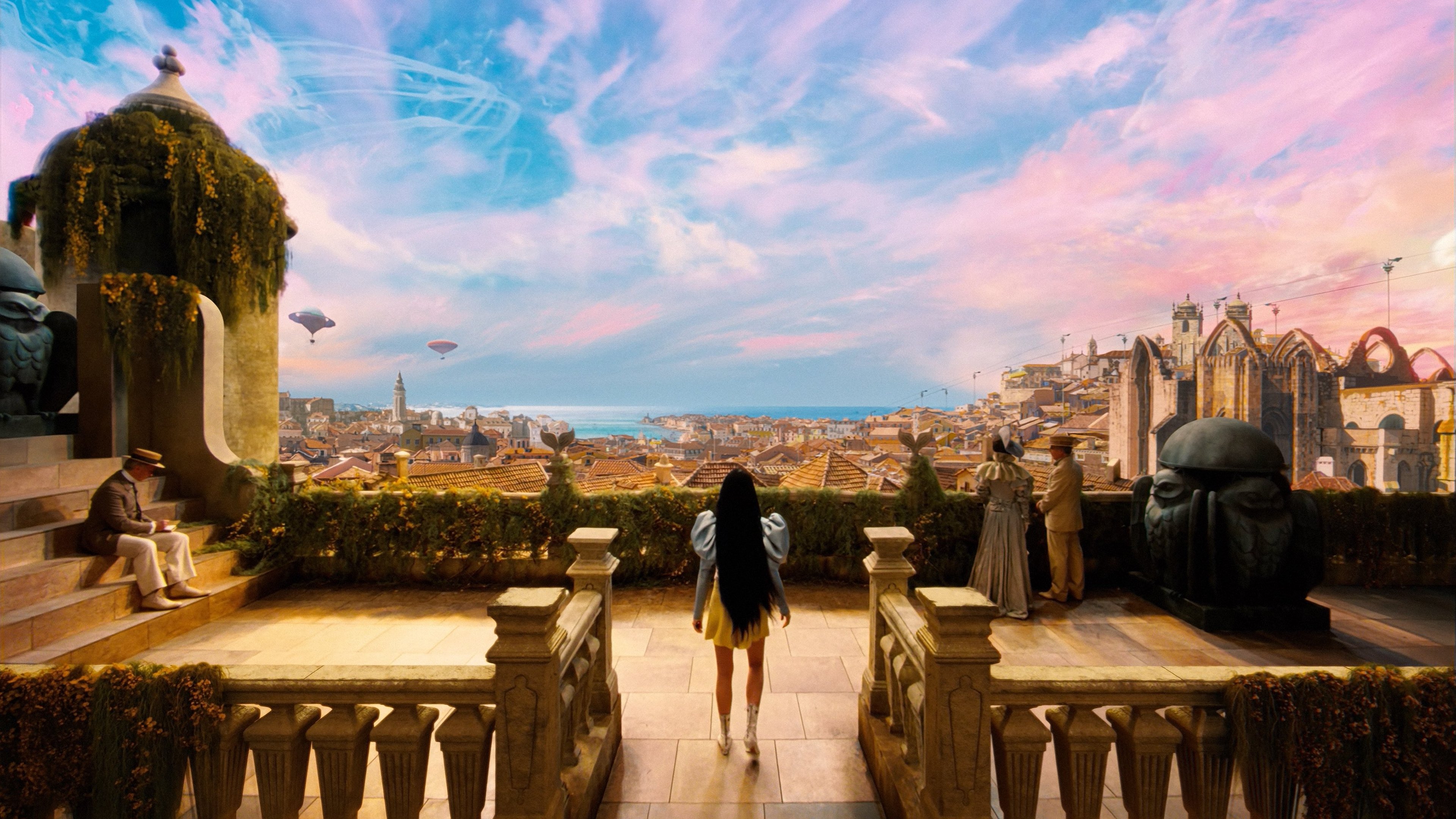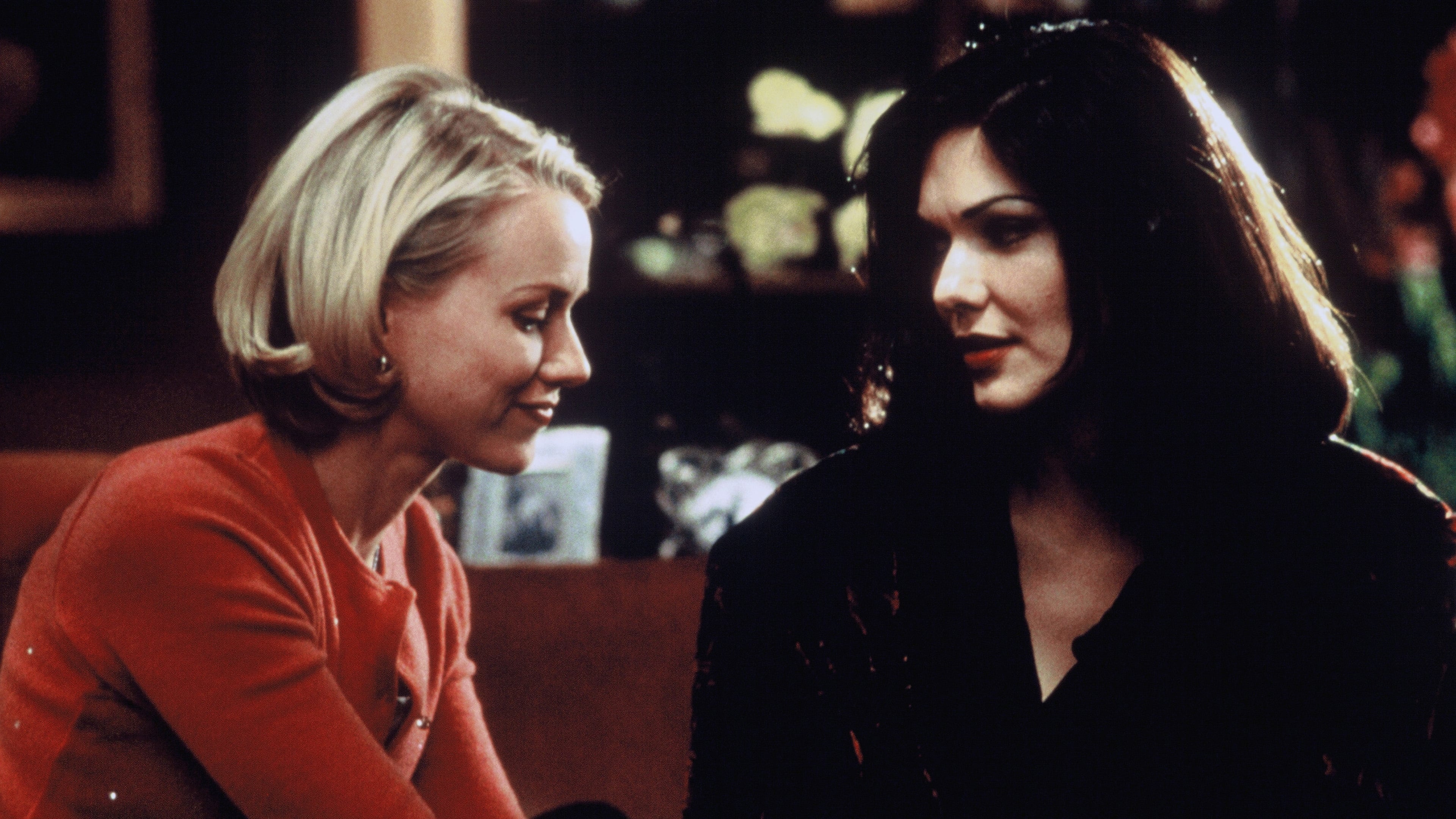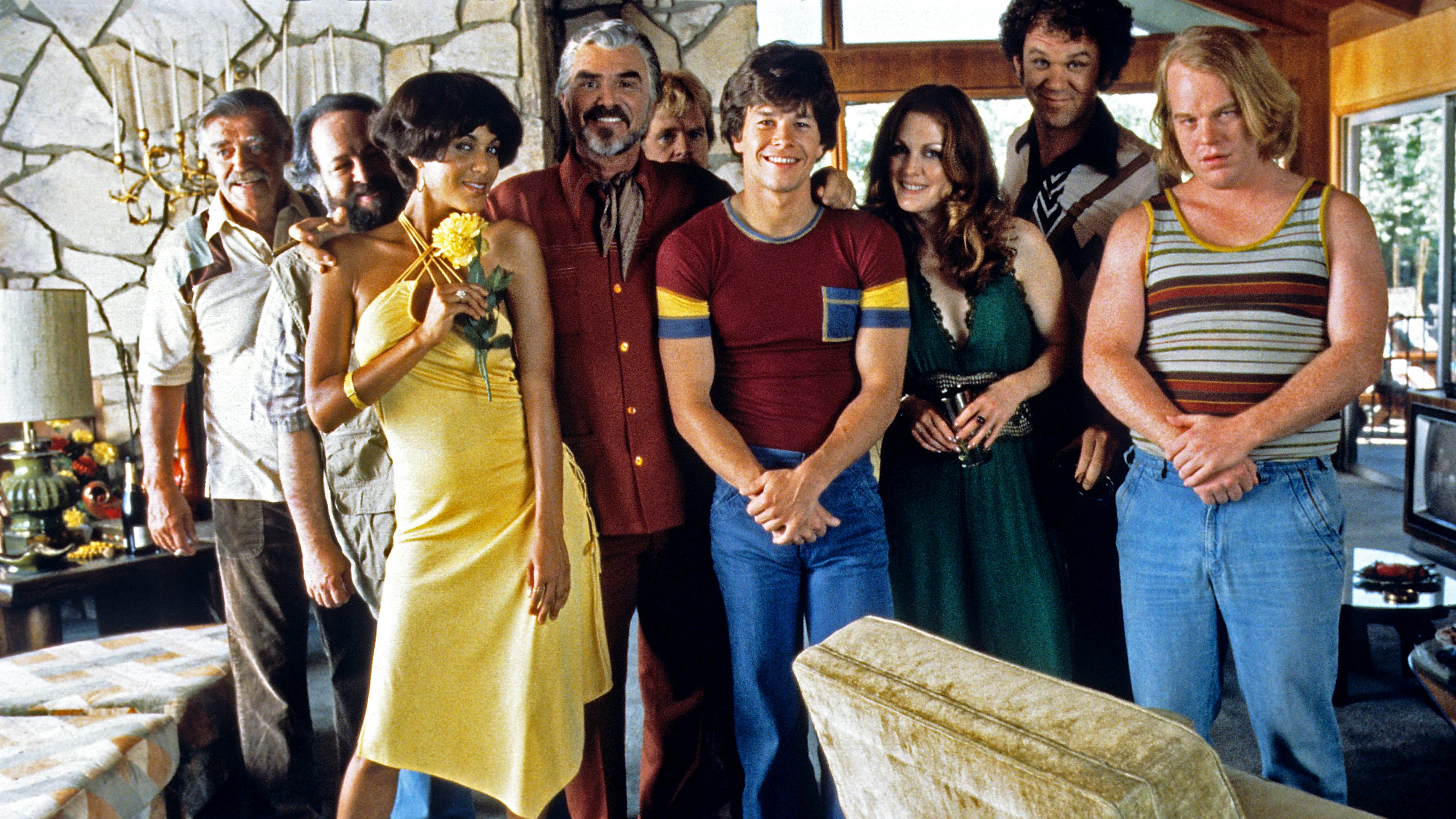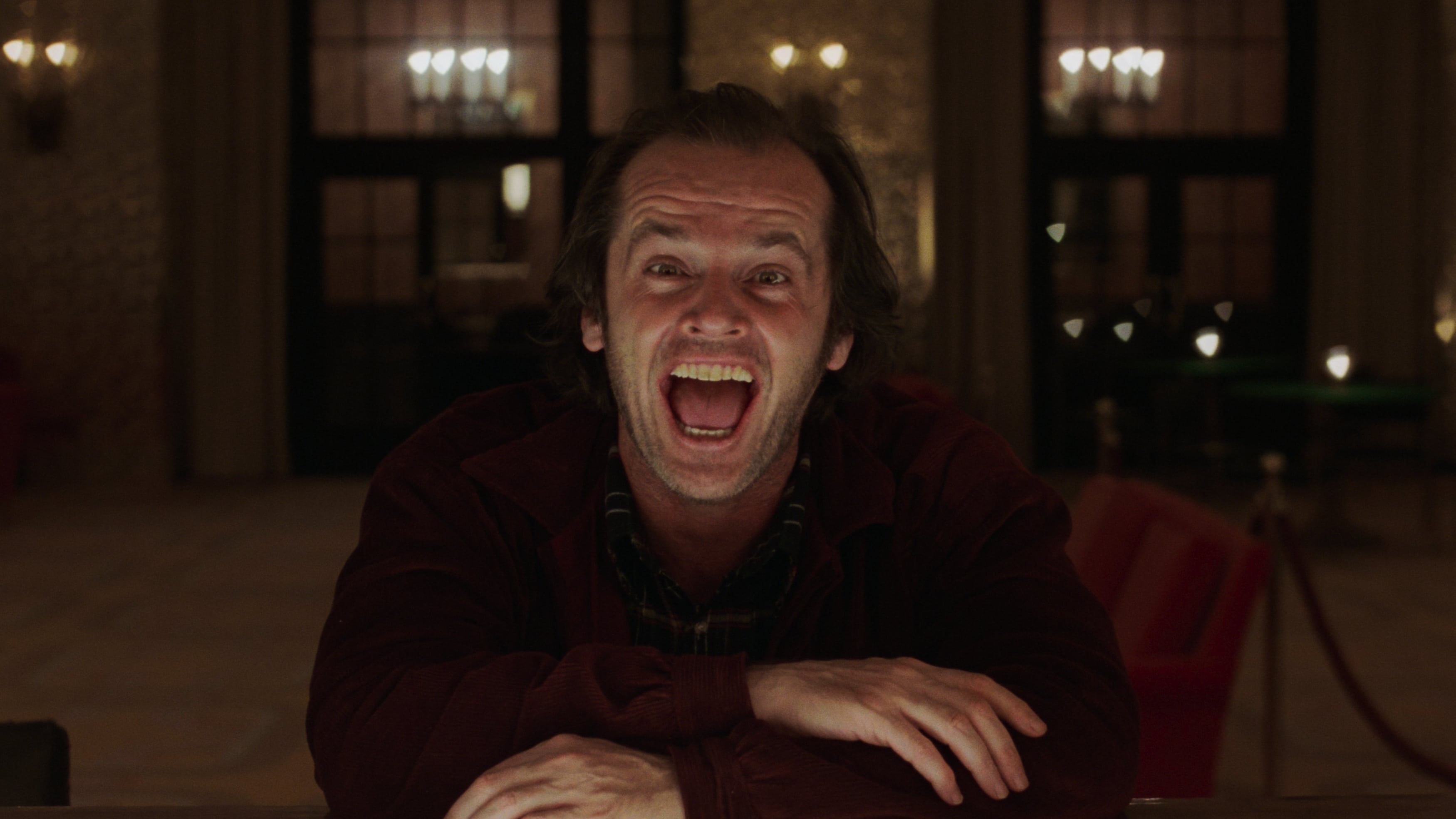Michael Mann's fascination with existing in the modern world became crystal clear in 1995 with what is perhaps his most popular film HEAT. While I have personally been intending on going back and revisiting some of his more recent works such as MIAMI VICE and BLACKHAT, it is in this film where I feel Mann found everything he searched harder for in those two films. Our first shot of the movie is that of Vincent (Tom Cruise), arriving in an airport in Los Angeles. The gray hair, the gray suit, and the sunglasses comprise the look of one of my favorite villains in cinematic history, and Tom Cruise gives what is, to me, his greatest performance. He is playing so drastically against type while being a pure embodiment of self-righteous nihilism that he steals every scene. His world view is incredibly bleak and inherently narcissistic, but he employs such a cold layer of logic in explaining why he views humanity and the modern world the way he does, accusing Max, our protagonist, of apathy and self-righteousness when he is understandably frightened by Vincent's actions.
The nocturnal cityscape has never looked as hypnotic as it does in Mann's films, and this is certainly no exception. Even though he is often using handheld camera, he finds a way to pack every image with such an immense amount of detail, while remaining largely simplistic in composition. Shots often have a clear foreground and background, with a grayish blue permeating both the quiet moments of contemplation and the sudden explosions of ruthlessly efficient violence. The film is absolutely filled to the brim with shots of crowds, both of people and of cars moving along a highway or street.
After our visual introduction of Vincent is our introduction to Max (Jamie Fox), in what is still one of my favorites from him. Max works as a cab driver in the night shift, and while he insists that this isn't what he plans on doing long term, further questioning from Vincent reveals that he has been doing this for twelve years. "Long-term" varies for most people, but I think we can all agree that doing anything for anywhere close to ten years of your life constitutes long-term. Max knows the ins and outs of his job, as you would hope and maybe even expect from someone who has been working somewhere for that long. He knows Los Angeles like the back of his hand. If you think it takes forty-five minutes to get from point A to point B, he'll get you there in twenty. He takes outstanding care of his car, making sure to meticulously clean it before and after each shift. Vincent and Max are both defined by their jobs, a normality in late stage capitalism, even if they spend the majority of the film in denial of that fact. Mann comes back to this idea time and time again in his films, starting most clearly in THIEF, and runs throughout THE INSIDER, this, MIAMI VICE and even PUBLIC ENEMIES to some extent.
Mann's screenplay moves at an incredibly brisk pace, as major plot points and characters are introduced in very quick succession to one another. The conversations all serve a purpose of revealing how the characters escape the banalities of their jobs; how they cope with how their employers don't care about them beyond the labor they provide. Max's first fare of the film, a prosecutor named Annie, has a big case coming up and is pulling an all nighter to prepare for the first day in court. After being asked, Max tells Annie that his dream in life is to put together a limousine company. He dreams of being more than a cog in the machine. Almost immediately after dropping Annie off, he meets Vincent.
The initial conversation between Vincent and Max provides us a great deal of insight into how these two men view the world and their place in it. Max repeats his plans to Vincent after he asks, though he is clearly much less confident in how he talks about it this time, almost realizing that this dream is, in fact, a coping mechanism rather than a concrete ambition. Max insists to Vincent that his job as a taxi driver is only a temporary gig while he gets his other plans in order, but after he reveals that he has been doing this for twelve years, Vincent cruelly calls him a doer instead of a talker, which is the polar opposite of the reality.
During this same conversation, Vincent tells Max about a story he read about a guy who died on the train somewhere in Los Angeles. His line "this was a country, it'd be the fifth biggest economy in the world and nobody knows each other" is a depressing insight into the modern world. In many ways, we are physically more connected than we've ever been, while simultaneously being more isolated than ever. Vincent's observation comes from a place of sadism and disdain, but it's hard to disagree with his assessments, which is largely what makes him such a compelling antagonist. He is the true opposite of Max: a man who does instead of talks.
One of the most iconic scenes of the film is the scene in the alleyway, where Vincent handcuffs Max to the steering wheel of his taxi before presumably eliminating another one of his targets. In the meantime, things don't let up for Max, who gets robbed at gunpoint by some guys who notice him stuck in the alleyway. They steal Vincent's briefcase, which they shortly thereafter learn is a death sentence. Moments like this are where the intelligence of Mann's screenplay often get overlooked. Vincent says "yo, homie" to the thugs as they walk away, which I believe is an intentional trick by Vincent to make the thugs think he is just some middle-aged, dorky, wannabe gangster, and to therefore not treat him as the dangerous psychopath he is. They get in his face with the gun, which he immediately uses against them to fatally punish them. Vincent wastes the two thugs without even batting an eye, which further adds to how little he values human life. While the scene is, of course, memorable for the sudden explosion of hyper-realistic violence, I find the hidden intricacies of Mann's dialogue to be what adds so much more depth to a film like this than the average action movie (not to say there's anything inherently wrong with that either, for the record).
Mark Ruffalo, an actor who I greatly admire, plays Fanning, an astute LAPD detective who isn't fully convinced that a taxi driver has totally snapped and is on a homicidal rampage. He tells the story of another cab driver who is widely believed to have done the same thing, but he clarifies that the detective working that case believes there was someone else in the cab with them, and while the detectives don't know exactly who Vincent is, we do. We can infer that this other person that the detective is convinced of is actually Vincent, which also tells us that this isn't the first time he has done this. This also puts another target on Max, as we now know that there is no chance that Vincent will let Max walk away. Again, it's the little things like these exchanges that endlessly exciting nuance to Mann's storytelling.
The interactions between Vincent and the people he intends to murder are philosophically intriguing but nonetheless extremely tense, as we have already been introduced to the near total disdain he has for human life. Take the following scene, for example, at the jazz club. He invites the trumpet player (his next target) Daniel over to his table after his set, and he asks him about his life. Vincent lets him talk about his upbringing and his interactions with Miles Davis before saying to Daniel "I got to tell the people in Culiacan and Cartagena that story". The existential fear the washes over Daniel's face, and I have to give props to Barry Shabaka Henley for playing this part so well. It may only be one scene, but he navigates his character through a wide range of emotions and adds many intangible layers to a man destined to only be remembered as a witness in a drug trafficking case. Vincent gives Daniel the false hope that he can escape with his life should he correctly answer a trivia question about Miles Davis, but, much like his plan with Max, it's obvious that no matter how Daniel answered, his fate was already sealed the moment Vincent walked through those front doors.
In order to prevent the breaking of Max's routine, and thus avoiding the raising of any suspicion, Vincent forces Max to visit his mother in the hospital. Once again, the intelligence of Mann's screenplay shows itself. While the surface-level justification of Vincent going with Max to see his mother is true, it also adds an insurance policy against Max, should he decide to flee or sabotage Vincent's plans. It adds another layer of terror to Vincent's character and how great of an antagonist he is.
As the scene in the hospital plays out, we learn that Max has been feeding his mother lies about what he's been doing with his life. She is under the impression that he's already formed this limousine company that he has talked about at multiple other points in the film (and that Vincent is one of his famous clients), but, in another example of us knowing more than the characters, we know that isn't the case. Max is only telling himself this lie about the limousine company to cope with the mundane nature of his job. We shouldn't judge Max here, as the internal reasons he has to lie to himself and others about the direction of his life are arguably understandable. However, it is in this scene where Max finally starts to emerge as someone willing to take action instead of just talk by snatching Vincent's briefcase and fleeing onto the highway overpass with it before throwing it over. In the meantime, however, Fanning begins to realize that many of these people dying are being killed by the same shooter.
Vincent and Max briefly discuss their childhoods, with Max justifying his lies by saying "she hears what she wants to hear". Vincent tells Max that his drunk, abusive father was the same way, before joking that he murdered him when he was twelve years old. Max says that he's sorry about what happened to Vincent before he immediately retorts "no, you're not". This is in the same light as before, when Max was shocked by Vincent's first murder and he presses him for not caring about the genocide in Rwanda equally as much as what he's doing.
Vincent continues to harp on Max for what he said to him earlier, during their first interaction. The thing about the limousine company is just something he tells himself to feel better. He correctly points out to Max that twelves years is not temporary, to which Max tells Vincent that he's waiting for it to be perfect, which Vincent clearly disapproves of. This is something we frequently see in real life, and I won't pretend that I've never waited to do something I wanted to do due to waiting for the perfect (and therefore almost nonexistent circumstances. In the same scene, Vincent instructs Max to impersonate him to get another copy of the target information. In other words, Max has to become Vincent, the epitome of a man of action, in order to survive. Vincent assures him to "take comfort in the fact that you never had a choice".
Max is forced to show fangs that he wasn't aware he had during his interactions with Felix. Of course, these fangs are a mirage, as he is pretending to be Vincent. The police, led by Fanning, are now on Vincent's trail due to the cab's roof being destroyed from when the first target died. During the beginning of the interaction, Max is timid and understandably nervous, for he has not fully embraced his inner Vincent yet. The removal of the glasses is when Max sheds the nervousness in favor of absolute confidence even in the face of what appears to be certain death. It is here that he becomes a man of action, and not a man of words. Thus, he is rewarded with the list, and his life. Fanning, as we will come to find out, is not. On the drive over to Club Fever, Max's compassion wins out again as he stops to let two coyotes cross the street. Even after becoming a man of action, he rejects the complete disdain towards life that Vincent feels and operates on.
The sequence in Club Fever remains an all time favorite. The music, and the rhythmic cuts to said music creates an energy rarely captured on film. How Vincent, Max and Fanning move through the flows of people to their respective points of interests like cars stopping on a crowded freeway is a perfect representation of Mann's depiction of collectivism versus individualism, with the almost mindless harmony only disrupted by a sudden gunshot. Mann uses this same visual motif in BLACKHAT, which almost literally taps into the idea of humanity now resembling lines of code in a world created not by elements, but by zeroes and ones. After eliminating his penultimate target, Vincent escapes by blending into the crowd. Max is under the impression that he is able to escape this, but Vincent kills Fanning, symbolically punishing him for doing more than what his job required. If Fanning had done the bare minimum and not gone to Club Fever, he would have survived.
The philosophical dialogue between Vincent and Max, deepening Vincent's individualistic nihilism versus Max's collectivist optimism, emerges one final time. Vincent deflects Max's accusations of narcissism by saying it's "what I do for a living", justifying his actions as a job and nothing more. Both men have now fully accepted that they are defined by their jobs, and nothing more. Vincent accurately points out that humanity, and by extension all life on Earth, is a microscopic iota of everything in the universe, and thus, what he does makes zero difference in the short-term or the long-term. Purely logically speaking, he is correct, but he uses this coldness to justify an abhorrent way of making a living. Max refuses to buy into it, and challenges his philosophy by attempting to kill them both by driving vastly beyond any speed limit.
It's not a coincidence in Mann's screenplay that Max eventually defeats Vincent by destroying the taxi, the only future he's known for twelve years. He takes action while recognizing the collectivist attitude he's had within himself the whole time, teaming up with Annie and rescuing her from Vincent. It's all too fitting that the final confrontation happens in the train station, a place where thousands of people congregate to go to their jobs without exchanging a word, and a reference to Vincent's story from the beginning of the film about a guy who gets onto the train in LA and dies, riding around the city for hours before anyone realizes there's a rotting corpse next to them. Ultimately, Vincent ends up being correct; in the busiest city of the fifth largest economy in the world, no one will notice.
